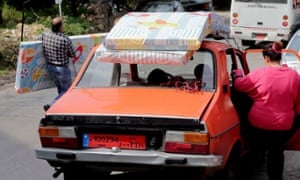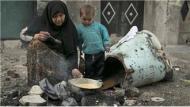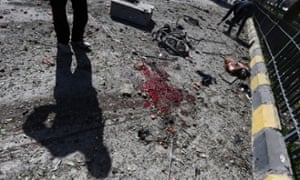
Joseph and his comrades seem to be replicating the faults of the far left internationally in equating the Gulf States with Assad's supporters, while believing that building some independent political force can replace the military struggle against Assad. The return of refugees, the lifting of sieges, the end to bombing, none of these things will happen without his governance being threatened. The provision of weapons to the insurgents is not a reactionary act, it may mean that reactionaries have more influence before Assad is defeated but does not mean that they would control Syria thereafter, just as the provision of Russian arms to the Republic in the Spanish civil war was not the problem, though the Stalinist influence that came with it was an unavoidable problem. This is not a matter of supporting one counter-revolutionary faction or another, but cautiously welcoming all support for the fight against Assad.
Joseph Daher:
'The main problem in Syria, and elsewhere in the region, has been that some among the democratic and progressive oppositions have chosen to support one of these two counter revolutionary forces, presenting them as the choice of the ‘the lesser evil’. This actually represents the road to defeat and the maintenance of an unjust system in which the popular classes in the region live. The role of a popular and democratic opposition is not to choose between different factions of the counter-revolution that are supported by various international and sub-regional imperialist actors.
The role should be to build an independent front from reactionary forces based on democratic, social, anti-imperialist principles and opposition to all forms of discrimination while working for a radical change of society in a dynamic from below in which the popular classes are the agents of change. In Syria this means to act on two levels. First, on a humanitarian level, it means to do whatever is possible to ease the suffering of the majority of the popular masses so that they are able to regain their capacity to organise and continue their struggle for liberation and emancipation. Foremost, this means the fast return of the refugees to their homes, the lifting of the starvation sieges on “liberated” regions, an end to the bombing and destruction of towns and cities and the liberation of tens of thousands of prisoners. Secondly, on a political level, it means to gather and assist politically and economically all the democratic and popular organisations that constitute the popular movement within and outside of Syria and that still try to maintain the initial objectives of the revolution.'














